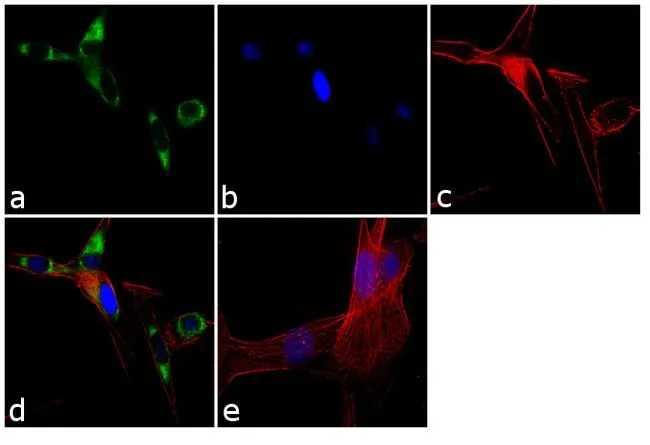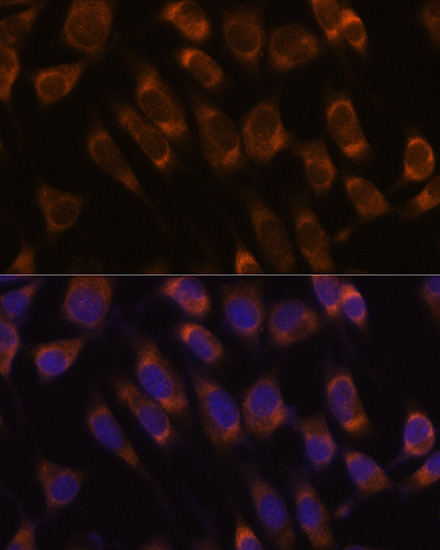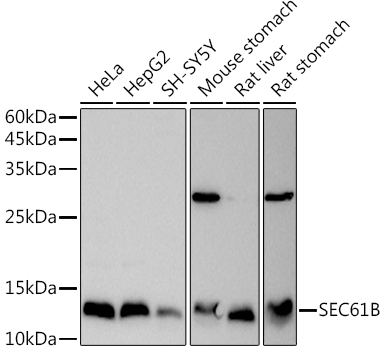
ICC/IF analysis of MDCK cells using GTX15576 SEC61B antibody. Panel e is a no primary antibody control. Green : Primary antibody Blue : Nuclei Red : Actin Fixation : 4% paraformaldehyde Permeabilization : 0.1% Trito X-100 for 10 minutes Dilution : 1:250 dilution in 0.1% BSA and incubated for 3 hours at room temperature
SEC61B antibody
GTX15576
ApplicationsImmunoFluorescence, ImmunoPrecipitation, Western Blot, ImmunoCytoChemistry
Product group Antibodies
ReactivityCanine, Human, Mouse, Porcine, Rat
TargetSEC61B
Overview
- SupplierGeneTex
- Product NameSEC61B antibody
- Delivery Days Customer9
- Application Supplier NoteWB: 1:20,000. *Optimal dilutions/concentrations should be determined by the researcher.Not tested in other applications.
- ApplicationsImmunoFluorescence, ImmunoPrecipitation, Western Blot, ImmunoCytoChemistry
- CertificationResearch Use Only
- ClonalityPolyclonal
- ConjugateUnconjugated
- Gene ID10952
- Target nameSEC61B
- Target descriptionSEC61 translocon subunit beta
- Target synonymsprotein transport protein Sec61 subunit beta, SEC61 translocon beta subunit, Sec61 beta subunit, Sec61 complex, beta subunit, protein translocation complex beta, protein transport protein SEC61 beta subunit
- HostRabbit
- IsotypeIgG
- Protein IDP60468
- Protein NameProtein transport protein Sec61 subunit beta
- Scientific DescriptionThe Sec61 complex is the central component of the protein translocation apparatus of the endoplasmic reticulum (ER) membrane. Oligomers of the Sec61 complex form a transmembrane channel where proteins are translocated across and integrated into the ER membrane. This complex consists of three membrane proteins- alpha, beta, and gamma. This gene encodes the beta-subunit protein. The Sec61 subunits are also observed in the post-ER compartment, suggesting that these proteins can escape the ER and recycle back. There is evidence for multiple polyadenylated sites for this transcript. [provided by RefSeq, Jul 2008]
- ReactivityCanine, Human, Mouse, Porcine, Rat
- Storage Instruction-20°C or -80°C,2°C to 8°C
- UNSPSC12352203






